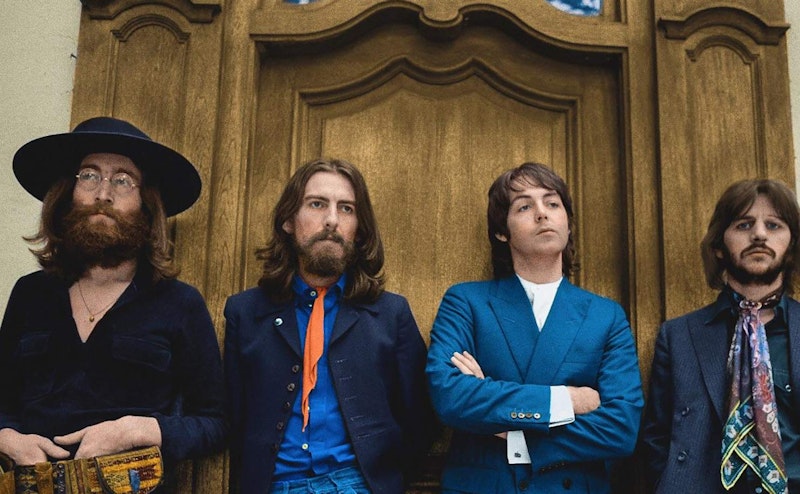When the Beatles broke up in 1970 it signaled a major change in my conceptual thinking. I felt betrayed. I was only 10 at the time but it represented a change of epoch. I recall hearing about it in front of Roland Park Elementary School where I was in sixth grade. A classmate told me, probably my best friend Fred who always had the inside information on everything important. He said simply: “The Beatles have broken up.” My brain slowly processed this phrase, and suddenly I understood. In a few seconds, the entire world went gray.
How was it possible The Beatles called it quits? I recalled just a few years before, I’d heard about the record Magical Mystery Tour coming out and that very same week my father, who worked at Ben Glass’ record store (the father of composer Philip Glass) brought home both Magical Mystery Tour and the Stones’ Their Satanic Majesties Request. Hearing those records was one of the greatest joys of my life up to that point. Love Was Conquering All. I felt lucky that I was born at the right time.
And now, it was over. What that meant to me is hard to describe. It was if a certain promised vision of the future was eradicated. And the 1970s, which for some was a romantic era, filled with Scooby Doo, the Weather Underground terrorists, Gremlin cars and radical feminist art, was a time of disillusion, dissolution and total breakdown. The Beatles represented something that was real. They were the focal point of the era. People now criticize the White Album as long, uneven and chaotic but I recall its political significance. It was inspired by Stockhausen, Cage, anarchy, freedom, possibility, love, chance, new horizons and risk. Some might find my claims ridiculous. They might think that child of 10 couldn’t have had such thoughts. They’re wrong. I couldn’t imagine the brilliance of the 1960s would ever end.
I tried to maintain interest. I bought the first solo records by John, Paul, George and Ringo. But it was like looking at photos of people who’d died; I didn’t want to be reminded of what was lost. And for God’s sake, McCartney’s “Live and Let Die”? It seemed like a personal insult. The song “Imagine,” whose popularity still amazes me, was like an advertisement: false, phony and a blasphemy. Years later I was sitting in the Towson State University film lab editing a movie when I heard John Lennon was shot. If this had happened 10 years earlier it would’ve destroyed me. Instead, I didn’t feel much. I realized that, for me, he’d died in 1970 in front of my elementary school.
I realize now that was naive. That’ll teach me: don’t believe the hype. Can’t say it’s much fun though, it made for a more promising world.

